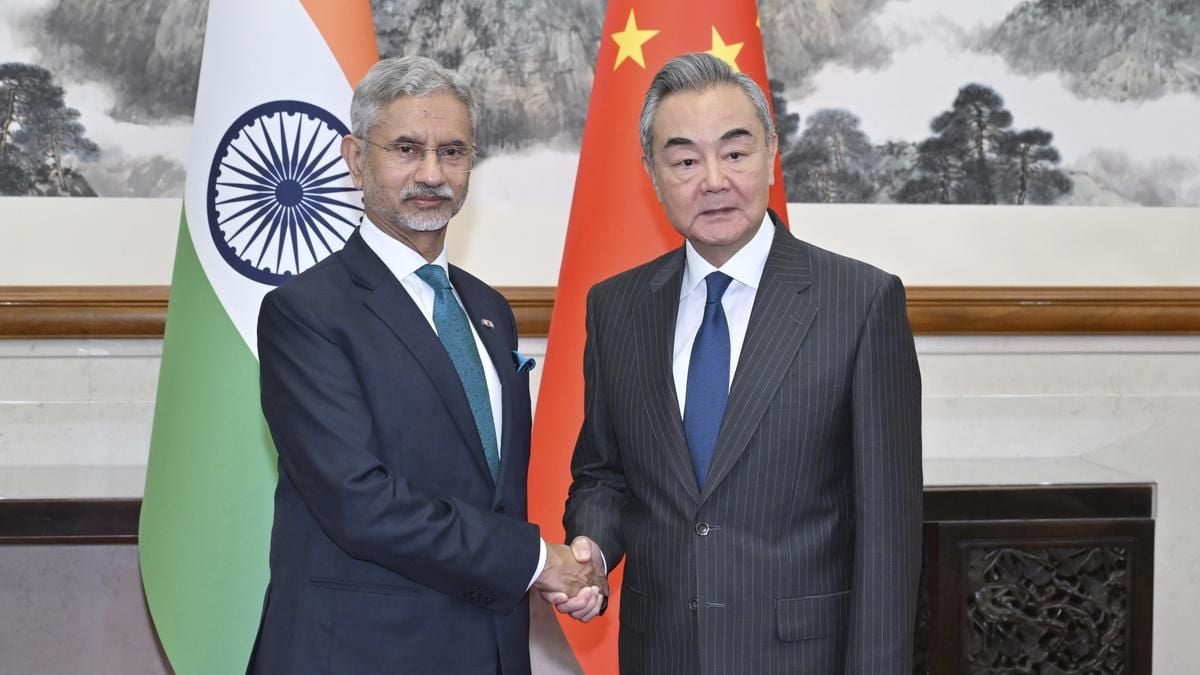

In a significant development for India-China relations, China has announced the resumption of exports of fertilizers, rare earth magnets/minerals, and tunnel boring machines (TBMs) to India. This decision addresses key concerns that New Delhi had previously raised with Beijing. The assurance was conveyed by Chinese Foreign Minister Wang Yi to External Affairs Minister S. Jaishankar during Wang's recent visit to India. Shipments of these items are understood to have already commenced.
This move signifies a potential easing of supply chain bottlenecks for Indian industries and infrastructure projects. The auto and electronics industries, in particular, had expressed concerns regarding restrictions on rare earth magnets and minerals from China, which were causing shortages and potentially impacting production.
The decision to lift these export restrictions is seen as a result of improved relations between the two countries, with both sides agreeing to gradually restore normalcy in ties. This follows successful troop disengagements along the Line of Actual Control (LAC) and multiple meetings between Wang Yi and S. Jaishankar aimed at resolving political differences. During talks in New Delhi, Wang Yi stated that relations between China and India are on a "positive trend" towards cooperation and that the two countries should "view each other as partners and opportunities, rather than adversaries or threats". He also pointed to the resumption of "dialogue at all levels" and "maintenance of peace and tranquility in border areas" as evidence of improving bilateral ties.
The export restrictions had been in place for nearly a year, impacting India's access to crucial materials. China accounts for a substantial portion of India's fertilizer imports, estimated at around 30%, and is a key supplier of rare earths used in auto components and TBMs for infrastructure projects. S. Jaishankar had raised the issue of these supplies during his visit to China in July, specifically mentioning urea, NPK, DAP fertilizers, rare earths, and TBMs.
The resumption of fertilizer exports is expected to benefit India's agricultural sector by potentially stabilizing urea prices and ensuring a more consistent supply for farmers. China is one of the world's largest producers of urea and had been maintaining strict control over its exports. The relaxation of these restrictions specifically for India marks a notable shift in policy. Fertilizer stocks in India have already rallied in response to the news. Companies such as Zuari Agro Chemicals, Fertilisers & Chemicals Travancore, and Chambal Fertilisers & Chemicals have seen gains in their stock prices.
In addition to fertilizers, the resumption of rare earth exports is crucial for India's technology and manufacturing sectors. Rare earth elements are essential for the production of various products, including electronics, electric vehicles, and defense equipment. China produces approximately 90% of the world's rare earth magnets, making it a dominant player in the global supply chain. The earlier restrictions had led to concerns about potential supply disruptions for manufacturers in India and other countries.
The easing of export restrictions also has geopolitical implications, suggesting a thawing of relations between China and India after a period of strain. Both countries have expressed a desire to strengthen bilateral ties and work together on regional and global issues. Wang Yi emphasized the importance of correct strategic perceptions and mutual respect between the two countries. He also highlighted the potential for cooperation in promoting world multi-polarization and democratization of international relations.
While the focus of the recent discussions was on trade and supply issues, boundary matters are expected to be addressed separately by National Security Advisor Ajit Doval in Special Representative-level talks. Despite some easing of tensions in Ladakh, both armies continue to maintain a significant presence along the LAC, highlighting the need for further de-escalation.
Overall, the resumption of fertilizer, rare earth, and TBM exports from China to India is a positive development that could boost India's economy, strengthen bilateral relations, and contribute to regional stability. This decision reflects a growing understanding between the two countries of the importance of cooperation and mutual benefit in a complex and changing world.